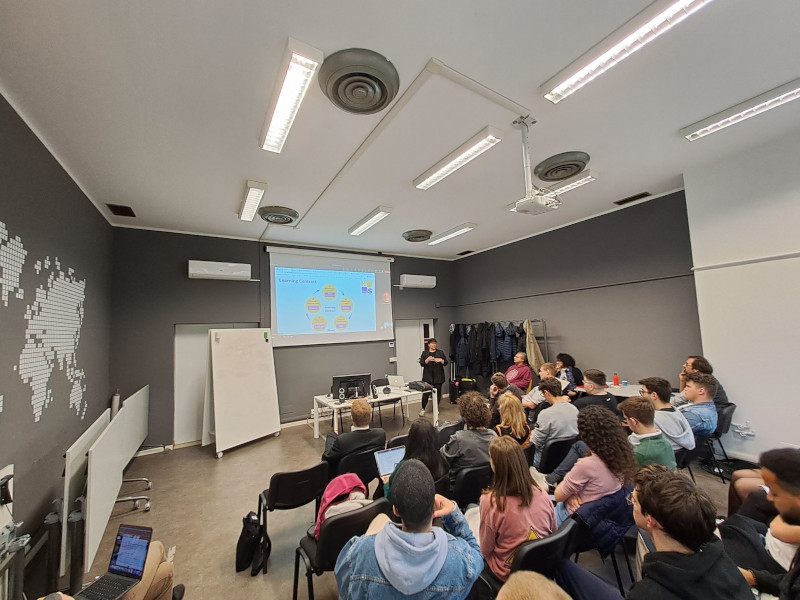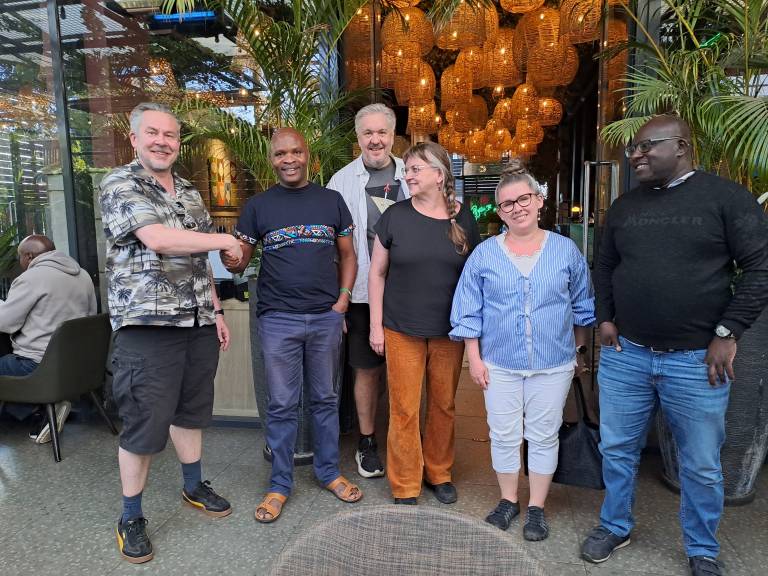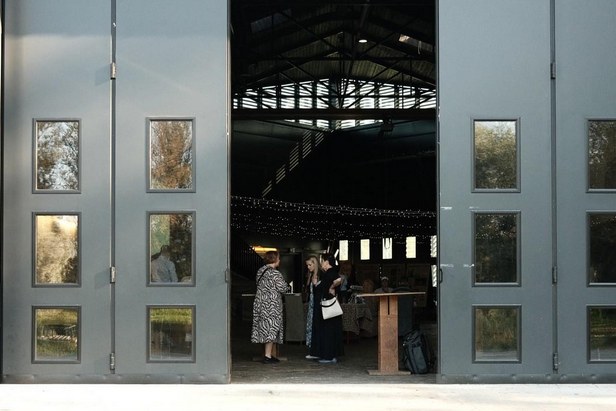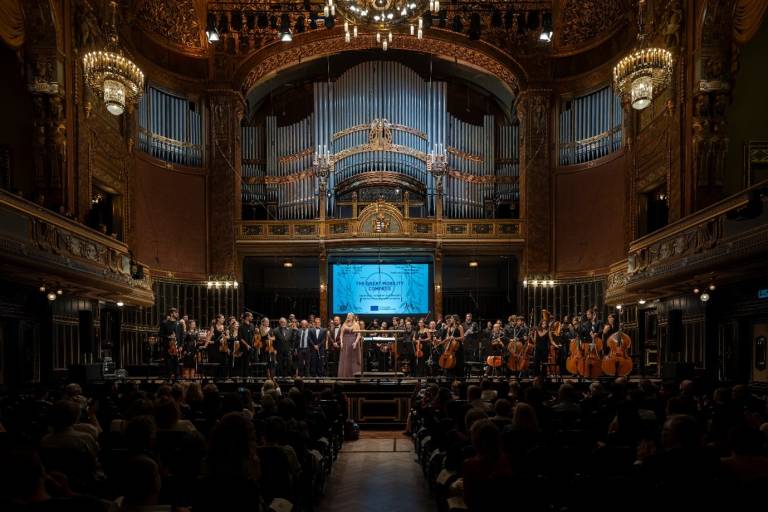The aim of Building your own competencies within an international, digital and entrepreneurial environment by academic knowledge -workshop and its assignment to students was to design a game that addresses different facets of the societal challenges of transition while allowing the player to experiment entrepreneurial competences. Through this assignment and its different stages, the idea was to give students the keys to create and implement a project that aims to address current societal issues.
Learning contract as a tool to support teams in the workshop
We wanted to support the students’ work during the week and decided to introduce our tool – Learning contract to the participating students and colleagues. The goal was that the students have the chance to learn a new useful tool that supports them as individuals and as a team.
Learning contract supports individuals to grow their self-awareness and encourages the individual to be an active member of his/her life. On a team level learning contract supports the team to really get to know each other and build trust in teams. This is the ground for innovation and courage of starting to create something new. And if we think about entrepreneurial competences – the learning contract develops for example self-awareness, planning and managing own time and working with others.
The learning contract is based on five questions:
- Where have I been?
- Where am I now?
- Where am I going?
- How will I get there?
- How will I know I have arrived?
The themes and perspectives in learning contract can be present job, career, studies, self-development, family and friends, or life in general.
When making the learning contracts, the first step is that the individual will first answer the five questions and write down their own learning contract. It can be an essay, a mind map, bullet points etc. The next step is that every individual can share their own learning contract with their team.
We went through the basics of the learning contract in the workshop in Bologna, which is based on those five questions. Afterwards the students understood how and why to use the learning contract. Then they had the chance to write down their own learning contracts during the first day of the workshop on Monday and share their learning contracts with their teams on Wednesday.
Here is some of the feedback from students:
“My expectations from the workshop in Bologna corresponded to reality. Designing a board game in a multicultural team was challenging, but very rewarding.
During the week, I learned and improved interaction skills by designing board games. Using the learning contract as a tool sparked a positive discussion in the team and we got to know each other better through it. The lectures were instructive and interesting.”
“The workshop in Bologna exceeded my expectations of planning a board game with a multicultural team. During the week, I improved my interaction skills while designing board games. The introduction of the learning contract tool promoted positive discussion inside the team and made the team members to get to know each other deeper. Using learning contract also helped me to understand and think about this moment and the future, because life is very hectic at the moment.”
Text: Sanna Tahlo
Picture: Lasse Hillman





